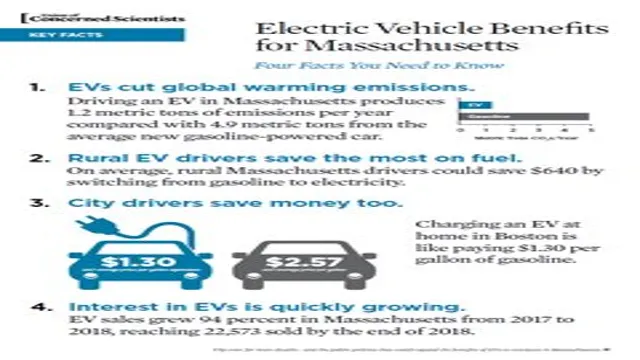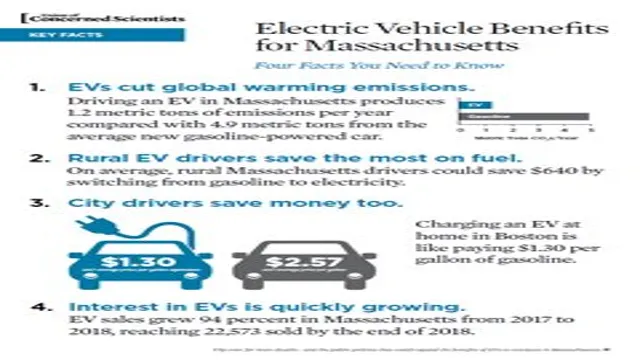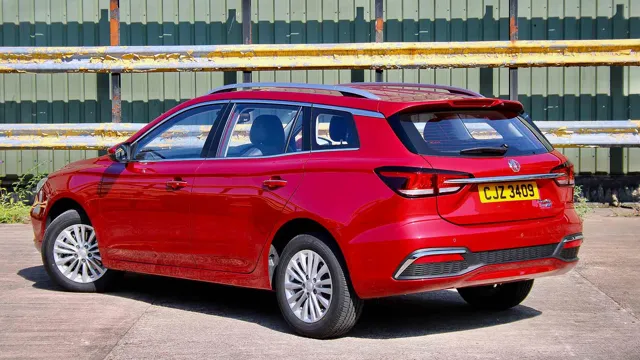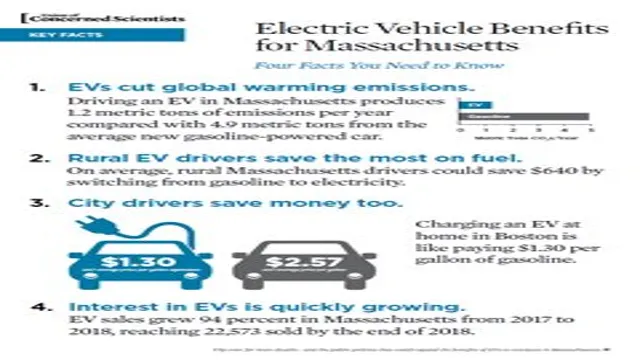The Future is Electric: Top Benefits of Owning an Electric Car
Have you ever considered investing in an electric car? With the increasing popularity of electric cars, there are numerous benefits to making the switch from traditional gas-powered vehicles. Not only are electric cars better for the environment, but they also save you money in the long run. In this blog, we’ll explore the top benefits of electric cars so you can decide if they’re the right fit for you.
So buckle up and let’s go for a ride!
Environmental Benefits
The benefits about electric cars are not only limited to their cost-saving and convenient features but are also highly beneficial to the environment. One of the most significant environmental benefits of electric cars is their zero emissions. Unlike conventional gas-powered vehicles that release toxic gases such as carbon dioxide, nitrogen oxide, and other air pollutants, electric cars emit zero tailpipe emissions.
This means that driving an electric car helps to reduce the amount of air pollution and improve air quality, making it healthier for both people and the environment. Electric cars also help in saving natural resources by reducing our dependence on non-renewable fuel sources. The use of electric cars can help to reduce the extraction and consumption of fossil fuels, which are non-renewable and finite in supply.
This means that electric cars can contribute to a sustainable future by reducing our carbon footprint and preserving the planet for future generations. Overall, the environmental benefits of electric cars are vast, and they are a much cleaner, greener, and more sustainable option for transportation.
Zero Emissions
Zero emissions vehicles have become increasingly popular due to their environmental benefits. Traditional gas-powered vehicles emit harmful pollutants that contribute to air pollution and climate change. However, zero emissions vehicles powered by electricity, hydrogen, or other renewable energy sources don’t emit any pollutants at all.
This means that they contribute to cleaner air, healthier communities, and a safer planet. Additionally, zero emissions vehicles also have the potential to reduce our dependence on fossil fuels, which are finite resources that contribute to a variety of environmental problems. Overall, zero emissions vehicles present a promising solution to reducing our impact on the environment and creating a sustainable future.
So why not make the switch today and help preserve our planet for future generations?

Reduced Air Pollution
Reduced air pollution is one of the most prominent environmental benefits we can observe due to various human activities that have recently taken a back seat due to the pandemic. With the sudden halt in transportation and industrial activities, we saw a drastic decrease in the emissions of harmful gases such as carbon dioxide, nitrogen oxide, and particulate matter. As a result, the air quality improved remarkably, and the sky became more transparent.
The reduction in air pollution is a great benefit for our health and the environment. The pandemic has shown us how our daily activities can have a significant impact on the environment. By adopting eco-friendly lifestyles and working towards reducing emissions, we can contribute towards preserving our planet’s health and improving our own quality of life.
Cost Savings
One of the biggest benefits about electric cars is the cost savings they can provide. Although electric cars are typically more expensive upfront than traditional gas-powered cars, they offer substantial cost savings over time due to their lower operating costs and maintenance needs. For example, electric cars have significantly lower fuel costs as they rely solely on electricity, which is cheaper and more stable in price than gasoline.
Additionally, electric cars require less maintenance because they have fewer moving parts that can wear out over time. For drivers, this means fewer visits to the mechanic and less money spent on repairs. Plus, many electric cars come with incentives or tax breaks that can further reduce the overall cost of ownership.
Overall, while electric cars may have a higher initial cost, the long-term cost savings can make them a smart and financially beneficial investment.
Less Expensive to Operate
When it comes to cost savings, opting for less expensive-to-operate alternatives can have a significant impact. This is especially true for businesses with high overhead costs, as it can help them save money in the long run. For example, using energy-efficient appliances and employing eco-friendly practices can significantly reduce power bills and minimize waste management costs.
Additionally, investing in technology can help streamline business processes and cut down on manual labor costs. All of these cost-saving measures can lead to significant financial gains for businesses, making them more profitable in the long run. While it may require some upfront investment, the long-term benefits of implementing these practices make it a worthwhile strategy.
Choosing cost-effective options can ultimately increase a company’s bottom line, boosting its financial success.
Tax Incentives
Tax incentives are a great way for businesses to save money. By taking advantage of tax incentives, businesses can reduce their tax burden and free up cash to reinvest in their operations. The cost savings can be significant, and it’s essential for businesses to be aware of all the available tax incentives so they don’t miss out on any opportunities.
Some common tax incentives include accelerated depreciation, research and development tax credits, and energy tax credits. By implementing energy-efficient technologies, businesses can not only reduce their tax burden but also reduce their energy costs, which is a win-win situation. In addition to federal tax incentives, many states and localities also offer tax incentives to businesses.
It’s a good idea for businesses to consult with a tax professional to ensure they’re taking advantage of all available tax incentives. Overall, tax incentives can be a valuable tool for businesses to save money and reinvest in their operations.
Lower Maintenance Costs
As a business owner or property manager, one of the most significant expenses on your budget sheet is maintenance costs. However, investing in low-maintenance features for your property can save you a considerable amount of money in the long run. By using durable and low-maintenance materials, such as vinyl flooring, metal roofing, and composite decking, you can cut down on the time, labor, and money required to maintain your property regularly.
Not only will this help you reduce your expenses, but it will also reduce downtime and keep your property up and running smoothly. Additionally, low-maintenance features can save you money from the perspective of initial costs, as they often come with more extended warranties and require fewer repairs or replacements over time. Ultimately, by choosing low-maintenance options, you can save yourself both time and money while ensuring that your property looks great for years to come.
Convenience and Performance
When it comes to the benefits of electric cars, two things come to mind: convenience and performance. First, electric cars require minimal effort to maintain. There’s no need for oil changes, spark plug replacements, or other common maintenance tasks required by traditional gas-powered cars.
In addition, charging an electric car is as convenient as plugging it in overnight to your home wall outlet or visiting one of the growing public charging stations. What’s more, electric cars offer impressive performance that rivals gas-powered cars. Electric motors provide instant torque, meaning rapid acceleration and a smooth ride.
In fact, electric cars have been known to outperform gas-powered sports cars when it comes to acceleration and handling. Additionally, electric cars produce little to no emissions, making them environmentally friendly and contributing to cleaner air in our cities. In conclusion, electric cars offer convenience and top-notch performance that makes them a smart choice for drivers on the go.
With zero emissions, no need for gas stations, and minimal maintenance, electric cars are a sustainable and practical choice that benefit not only the individual driver but also the environment as a whole.
Quieter and Smoother Drive
When it comes to driving, convenience and performance are key. And one way to optimize these features is by ensuring a quieter and smoother drive. Not only does a quieter car create a more pleasant experience for passengers, but it also has performance benefits.
With less road noise and engine vibration, it’s easier to hear alerts, music, and conversations. Plus, a smoother ride means less wear and tear on the car and its parts, leading to better fuel efficiency and a longer lifespan. So how can you achieve a quieter and smoother drive? It starts with regularly maintaining your car and addressing any issues that may cause excess noise or shake.
You may also want to look into upgrading your tires or suspension for a smoother ride. With a little effort and investment, you can enjoy a more convenient and high-performing car.
Less Dependent on Foreign Oil
As we all know, the United States has been dependent on foreign oil for far too long. However, thanks to advancements in technology, we are becoming less dependent on foreign oil, resulting in convenience and improved performance. One of the reasons for this is the development of electric vehicles.
Now we can drive a car that runs on electricity, meaning we don’t have to rely on gas as much. Furthermore, hybrid vehicles can run on both gas and electricity, making them more fuel-efficient and eco-friendly. Another reason is the increased use of renewable energy sources such as wind and solar power, which can now be found on homes, businesses, and public buildings across the US.
By utilizing these energy sources, we can reduce our reliance on fossil fuels, making us less vulnerable to oil price shocks and potential supply disruptions. The convenience of not having to worry about the next gas price hike is an added benefit, and the performance of electric and hybrid vehicles is only improving, making them a viable option for many consumers. With these advancements, we’re taking important steps towards building a more sustainable and energy-independent future.
Future-proofing
There are numerous benefits to investing in an electric car, especially when it comes to future-proofing your transportation. Not only do electric cars emit fewer pollutants than gas-powered vehicles, but they also boast advanced technology that ensures they will remain relevant for a long time to come. Electric cars rely on electricity, which can be generated from a variety of sources including renewable solar, wind and hydropower, making them sustainable and environmentally friendly.
This means you can reduce your carbon footprint while enjoying the convenience and cost savings that electric cars provide. Moreover, as the demand for electric cars continues to grow, charging infrastructure is expanding rapidly, which ensures that you’ll have more options when it comes to charging your car. With their advanced technology, zero emissions and expanding infrastructure, investing in an electric car can be an excellent way to future-proof your mode of transportation and reduce your environmental impact.
Resale Value
When it comes to making big-ticket purchases, it’s important to think ahead to ensure you’re making the best investment. One way to future-proof your investment is to consider the potential resale value. Whether you’re buying a home, a car, or even a piece of furniture, it’s important to think about how it will hold up over time.
Investing in high-quality materials and timeless designs can help ensure that your purchase will retain its value and appeal to future buyers. It’s also important to keep your investment well-maintained and up-to-date with any necessary repairs and updates. By future-proofing your investment, you can make sure you’re not only getting the most enjoyment out of it now, but also that you’ll be able to recoup some of your investment down the road.
So before making any big purchases, take a moment to consider the potential resale value – it could end up being a smart financial decision in the long run.
Preparing for Electric Infrastructure
As the world continues to transition towards renewable energy sources, it is important to future-proof electric infrastructure to accommodate these changes. This means ensuring that existing infrastructure can handle the increased demand for electricity from renewable sources and that new infrastructure is built with the flexibility to adapt to future changes. By using modern technologies and investing in research and development, electric companies can better equip themselves to meet the needs of their customers in the years to come.
One way to future-proof electric infrastructure is through the use of smart grids, which utilize advanced sensors and computer systems to manage energy more efficiently and reduce waste. Another approach is to invest in energy storage technologies, which can store excess energy from renewable sources and release it during times of high demand. By taking a forward-thinking approach to electric infrastructure, we can create a more resilient and sustainable energy system for the future.
Conclusion
In conclusion, when it comes to electric cars, the benefits are endless. From saving money on gas and maintenance costs to promoting a greener future for the planet, electric cars are the way of the future. Not to mention the instant torque and smooth acceleration that make them a joy to drive.
So whether you’re looking to reduce your carbon footprint or simply upgrade your ride, an electric car may just be the perfect fit for you. After all, why settle for a gas-guzzling dinosaur when you can ride in the sleek, efficient, and environmentally-friendly world of electric vehicles?”
FAQs
What are the environmental benefits of electric cars?
Electric cars produce zero emissions, which greatly reduces air pollution and helps combat climate change. They also contribute to reducing our dependence on fossil fuels.
Are electric cars more expensive to buy than gas-powered cars?
Generally, electric cars tend to have a higher upfront cost than gas-powered cars. However, they can be more cost-effective in the long run due to lower fuel and maintenance costs.
How long does it take to charge an electric car?
The charging time for an electric car varies depending on the type of charger. For a standard Level 2 charger, it can take anywhere from 4-8 hours to fully charge an electric car. With a fast charger, it can take as little as 30 minutes to get an 80% charge.
Can electric cars go as far as gas-powered cars?
The range of an electric car depends on the model, but some electric cars can travel over 300 miles before needing to be charged. This is comparable to some gas-powered cars. However, charging infrastructure can still be limited in certain areas, making long-distance travel a challenge for electric car owners.





